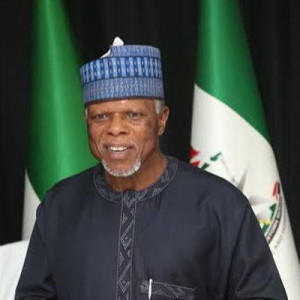
Comptroller General of the Nigerian Customs Service (NCS), Col Hameed Ali (Rtr) Tuesday explained that the nation’s borders are porous because of their interconnectivity with the adjoining nations.
He added that there is no line demarcating Nigeria from its neighboring countries to specifically show the end of the country.
According to him, besides, Nigerians’ kinsmen living across the borders, neighboring countries speak the same language with the nation.
This situation, said the Customs boss, makes it difficult to claim that a particular boarder is well secured in Nigeria.
Ali, who spoke with reporters in Abuja, after the opening ceremony of the first meeting of the technical committee on the security project, said that the situation has constituted some security challenges that the project now seeks to address.
He said: “As it regards to porous borders like Mark Shaw said, it, it is across the nation, everywhere is porous and you can’t say this is a boarder that is well is secured. Ours is porous because we have boarders that are virtually interconnected.
” Our brothers and kins are living across the borders . If you take Benin Republic for instance, some of us speak the same language, we live within the same boarder, there is no line where there is Nigeria.
“These are parts of the problems we have and for us this is a security problem . We must address this. We must be able to find a solution to it and that is the idea behind this project.”
On the project, the CG recalled that it was initiated in Abidjan but the service Tuesday brought experts from the region to make it a success.
Ali noted that the meeting would develop a framework for the Director Generals to consider.
He said that the experts at the meet were expected to develop a roadmap and a concept on the way forward in terms of security issues.
The Customs boss said that: “We are hosting it. We initiated the project as I mentioned in my opening remarks at our regional meeting in Abidjan. We are happy that the entire members of the CGs of Customs of the region are here.
“And we are now trying to take it into fruition by making sure that we start with our experts. The main idea of this meeting today is to get the experts to develop the framework for consideration by the DGs.
“What we expect from them is to draw a road map and develop a concept of what it should be so that at the end of the day make recommendations on how we can move forward. And thereafter the DG of the respective countries will now meet to consider those recommendations. And then bring them to fruition. And that will set pace for the progress.”
A representative of the Global Initiative against Trans National Organized Crime, Mr. Mark Shaw, in his remarks at the opening ceremony noted that the meeting was important because of the changes in the global environment.
He said that the meeting was to come to term with the challenges that the globe was facing.
He pointed out the challenge was a historic convergence between the phenomena of organized crime and the phenomenon of majority.
He urged the meeting not to consider the global challenge as that of law enforcement instead it should consider ways of tackling it with a cross boarder solution.
Shaw insisted that globalization will change but it will not be reversed, stressing that the forces of global economy would not be easy to curtail.